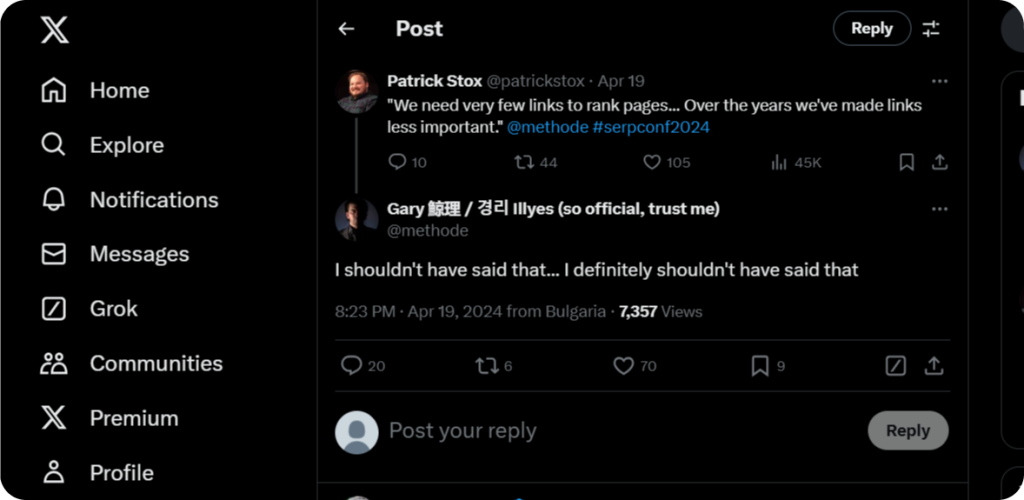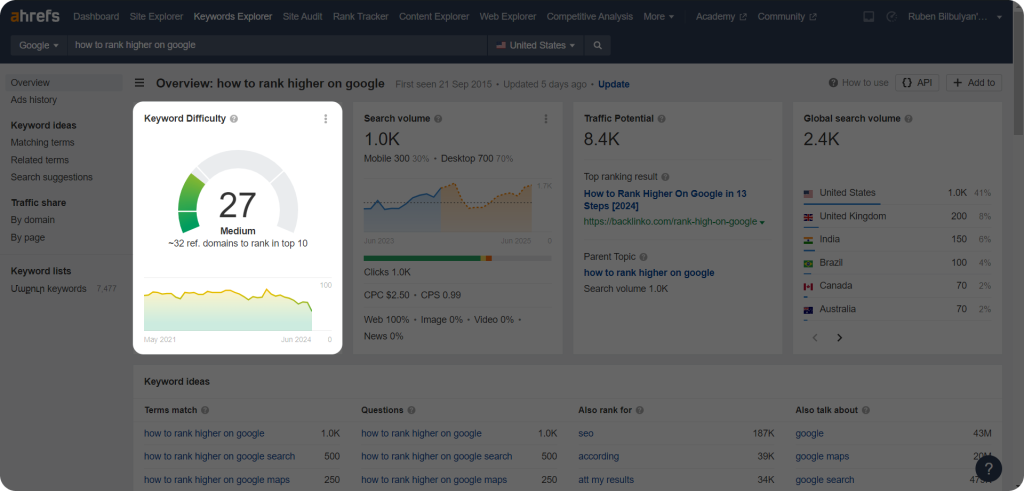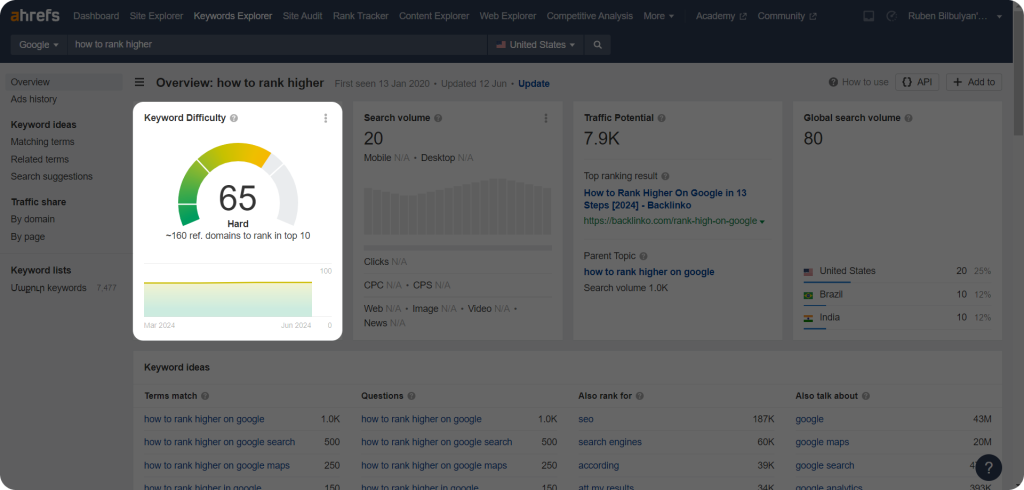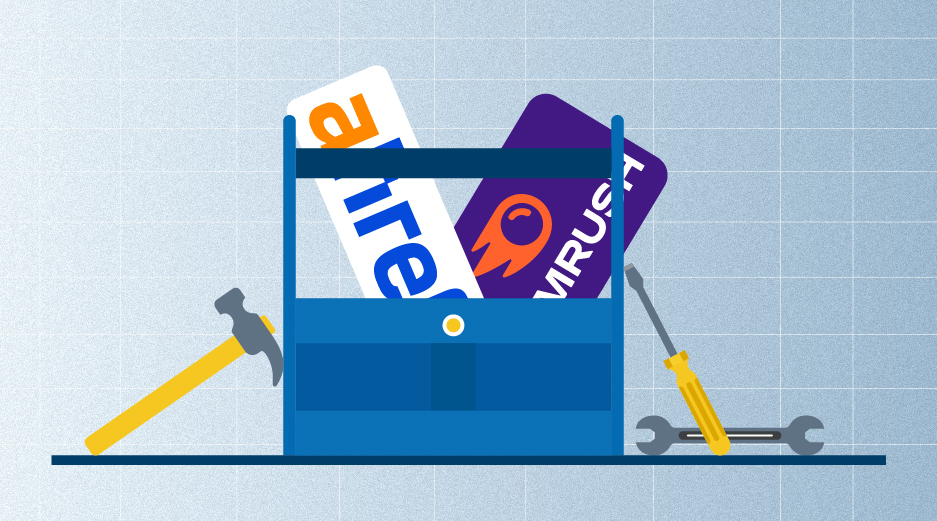At SayNine, one of the most common questions we hear is, “How many backlinks do I need?”
The truth? There’s no one-size-fits-all answer. Every business is unique, and while some link building agencies may promise magic numbers and results, backlinks alone don’t guarantee higher rankings.
So, stay with us—we’ll give you a straightforward answer based on our experience.
You’ll also discover:
- What backlinks are and whether they still matter.
- The factors that impact how many backlinks you actually need.
- Whether backlink quality is more important than quantity
Let’s start!
What are Backlinks In SEO?
Backlinks, also called inbound or incoming links, are links from one website pointing to another.
When a website links to yours, it tells search engines that your site is credible and contains valuable content.
But keep in mind that not all backlinks are created equal, so you will need to understand which backlinks are best—links from relevant sites will have the most impact. Understanding this and learning how to manage your backlinks properly can help you focus on high-quality links that boost your site’s credibility and rankings.
Further reading:
Do Backlinks Still Matter?
Backlinks are one of the ranking factors that Google uses to determine the authority and relevance of a website. They help search engines understand the value and relevance of your content.
However, some experts believe the role of backlinks in SEO might decrease over time.
In one of the Q&A sessions, Google’s John Mueller said that he expects backlinks to become less important in the future.
He explained.
“And to some extent, links will always be something that we care about because we have to find pages somehow. It’s like how do you find a page on the web without some reference to it?
But my guess is over time, it won’t be such a big factor as sometimes it is today. I think already, that’s something that’s been changing quite a bit.”
In addition, Patrick Stox from Ahrefs tweeted that only a few quality backlinks are enough to rank a page, and this view was confirmed by Gary Illyes from the Google Search team.

But here’s the thing: backlinks are not going anywhere anytime soon. In fact, they’re still extremely valuable. Our own survey found that 95% of SEO professionals agree that link building is still crucial to SEO success.
So, while the role of backlinks might evolve, their importance today is undeniable.
Which Factors Influence How Many Backlinks I Need to Rank?
It’s not about “How many”, it’s about the quality of backlinks, the right targets, and consistency.
So, here are some of the fundamental factors to keep in mind.
Keyword Difficulty
The amount of backlinks necessary for a website to rank higher on search engines can also be impacted by the target keyword difficulty.
Keywords with high difficulty are often highly competitive because many websites are trying to rank with them. In such cases, you generally need more backlinks to compete effectively.
These backlinks also need to come from reliable websites.
For keywords with low difficulty, there is less competition. Therefore, fewer backlinks might be needed to rank well. Even a modest number of quality backlinks can be sufficient.
As shown in the picture below, for the keyword “how to rank higher on google” with the 27 KD, you’ll need approximately 32 referring domains to rank.

If it holds at 50 KD or more, that number may rise from between 50 to 100 backlinks. (See the picture below.)

Website Content
How many backlinks you need depends a lot on how good your website content is.
We recommend focusing on creating valuable and linkable content (e.g. infographics, statistics, etc.) that naturally attracts organic backlinks. Other websites are more likely to link to content that is both useful and trustworthy, reducing the need for intensive link building efforts. Focusing on clear and useful blog post ideas can help you create link-worthy content and attract backlinks over time.
Plus, if your content uses the right keywords, search engines can understand its relevance better. Balancing short-tail vs long-tail keywords in your content can also influence backlink opportunities, as broader terms attract high search volume while longer, more specific phrases tend to drive targeted traffic and engagement. This means you might not need as many backlinks to rank well.
Internal linking also plays an important role here. The more internal links you have connecting relevant pages, the easier it is for search engines to understand your site. If you have a strong internal linking structure, building backlinks to your domain can benefit multiple pages, not just one. These backlinks can spread their value across your site, helping other pages rank better too. This is why finding internal linking opportunities can make your backlink strategy even stronger. Moreover, learning how to fix orphan pages is also essential to ensure no important content is left disconnected.
Refreshing your content also helps—it keeps it relevant and reduces the pressure to build a reasonable number of new backlinks constantly.
Site’s Technical Performance
Your site’s technical SEO plays a crucial role in how many backlinks you need to build monthly to rank.
The better your site’s technical setup, the fewer backlinks you’ll need to build. A well-optimized site ensures that search engines can crawl and index your pages efficiently, making it easier for them to understand your content and rank it higher, meaning that you don’t need a large number of backlinks to achieve good rankings. However, canonicalization errors, broken links, and slow load times can hurt your site’s performance and impact rankings, which is why it’s essential to regularly monitor your website for these issues.
We recommend conducting a website audit to reveal any technical issues that negatively affect your site’s performance. By identifying these issues, you can better understand how many backlinks are necessary.
Competitor Backlink Quantity (The good ones)
Another key factor in determining how many backlinks you need is learning how many good backlinks your competitors are building.
By checking out their backlink profiles, you can get a sense of what’s working in your industry. If your competitors are getting a lot of valuable backlinks, chances are, you’ll need a similar number to stay competitive.
This way, you can set realistic goals for your link building campaign.
How Many Backlinks Do I Need to Rank? Here’s the Answer
To your question, “How do I rank higher on Google,” the answer involves multiple factors, with backlinks being a crucial component. And, how many backlinks do I need?
Good question! It’s one of the top link building questions we receive from our clients. At our agency, we start with a minimum of 10 backlinks per month to get things moving and start seeing some results.
Some new companies might need more than that to get their website off the ground because they’re just starting.
But how many links does it take to rank high in search results? The number can vary depending on how well your website is set up and the quality of your content. Remember, backlinks are just one part of the SEO puzzle.
While 10 backlinks is a good starting point, you’ll likely need more as your site grows. And don’t worry—you won’t get penalized for having a reasonable number of backlinks. That’s just a link building myth that’s been debunked.
However, if you do backlinking for a certain period of time and then stop, you most likely won’t see good results in the long run.
Consistently getting backlinks over time helps in creating a natural backlink profile; this is because search engines prefer a steady growth of backlinks over sudden spikes, which can sometimes be viewed as manipulative. That’s why monitoring link velocity is key to ensuring this growth appears organic and sustainable.
If you are in the SaaS industry, getting SaaS backlinks can also significantly boost your site’s authority and rankings, as these types of backlinks tend to come from reputable sources within the same niche.
Overall, how many backlinks is good for your site depends on factors like your website’s setup, content quality, industry competition, and brand reputation. Plus, depending on how consistent you are with your backlinking efforts the results can also vary.
The Timeless Debate: Backlink Quantity vs. Quality
Now comes one of the most common link building questions: what is more important: backlink quality or quantity?
In the early days of SEO, only the volume was often enough to boost a website’s rankings. More links meant more chances for a website to be discovered by search engines.
But that approach is outdated now.
Search engines prioritize backlink quality over quantity, which is why they recommend cleaning your backlink profile from poor backlinks, as they can really hurt your SEO.

However, having just a few valuable backlinks per month isn’t enough to make a significant impact. And, having too many backlinks from poor websites won’t help either.
In other words, it’s not about how many websites link to my website, but how many trustworthy ones do. And the more good backlinks you get, the better your chances of ranking higher.
What’s the key takeaway? We recommend keeping a balance and consistency when building backlinks to achieve the best results. Quick tip: If you’re wondering, ‘How can I check my ranking on Google?’ there are several tools available to assist you.
To check your Google rankings, you can use tools like Google Search Console, Ahrefs, or SEMrush to monitor your website’s performance and keyword positions.
To Sum Up
Now that we’ve covered your question of “how many backlinks do I need,” let’s wrap this all up for you!
- Backlinks are links from one website directing to another.
- Backlinks are crucial for SEO, as they tell search engines that your content is valuable and trustworthy.
- How many links does it take to rank high in search results? The right number of backlinks depends on several factors such as keyword difficulty, how optimized your content is, how your website performs, and how many good backlinks your competitors build.
- While there’s no set rule about how many backlinks you need to rank, starting with at least 10 backlinks can give your website a good boost.
- It’s essential to keep a balance between quality and quantity when it comes to building backlinks.
Go forth and link up! Good luck!
FAQ about how many backlinks do I need
How many backlinks are enough?
The right number of backlinks is what you can maintain consistently over time. If you’re aiming for a number that feels unsustainable over the next two or three years, then it’s probably too high.
Is 1000 backlinks good?
While 1000 backlinks may seem impressive, quality should always come before quantity. Agencies that promise massive quantities often use risky and spammy tactics, which won’t do good for your SEO.
How to build 100 backlinks in 30 days or less?
While it’s possible to build 100 backlinks in under 30 days using automated tools, it’s not advisable if you can’t maintain both quality and quantity over the long term.
How many backlinks per day is safe?
Daily backlink targets aren’t ideal; focus on monthly goals instead. The safe amount depends on quality. If someone promises a lot of backlinks per day, they’re probably using automated or comment forum links.
Is getting 100 backlinks from 100 different websites better for ranking?
Getting 100 backlinks from 100 different reputable sites is good for SEO. Plus, unique backlinks diversify your profile and boost your site’s credibility in the eyes of search engines.

Quiz Time
Let's put your knowledge to the test.
Leave your email below to get a SayNine certificate!
Are you sure?






